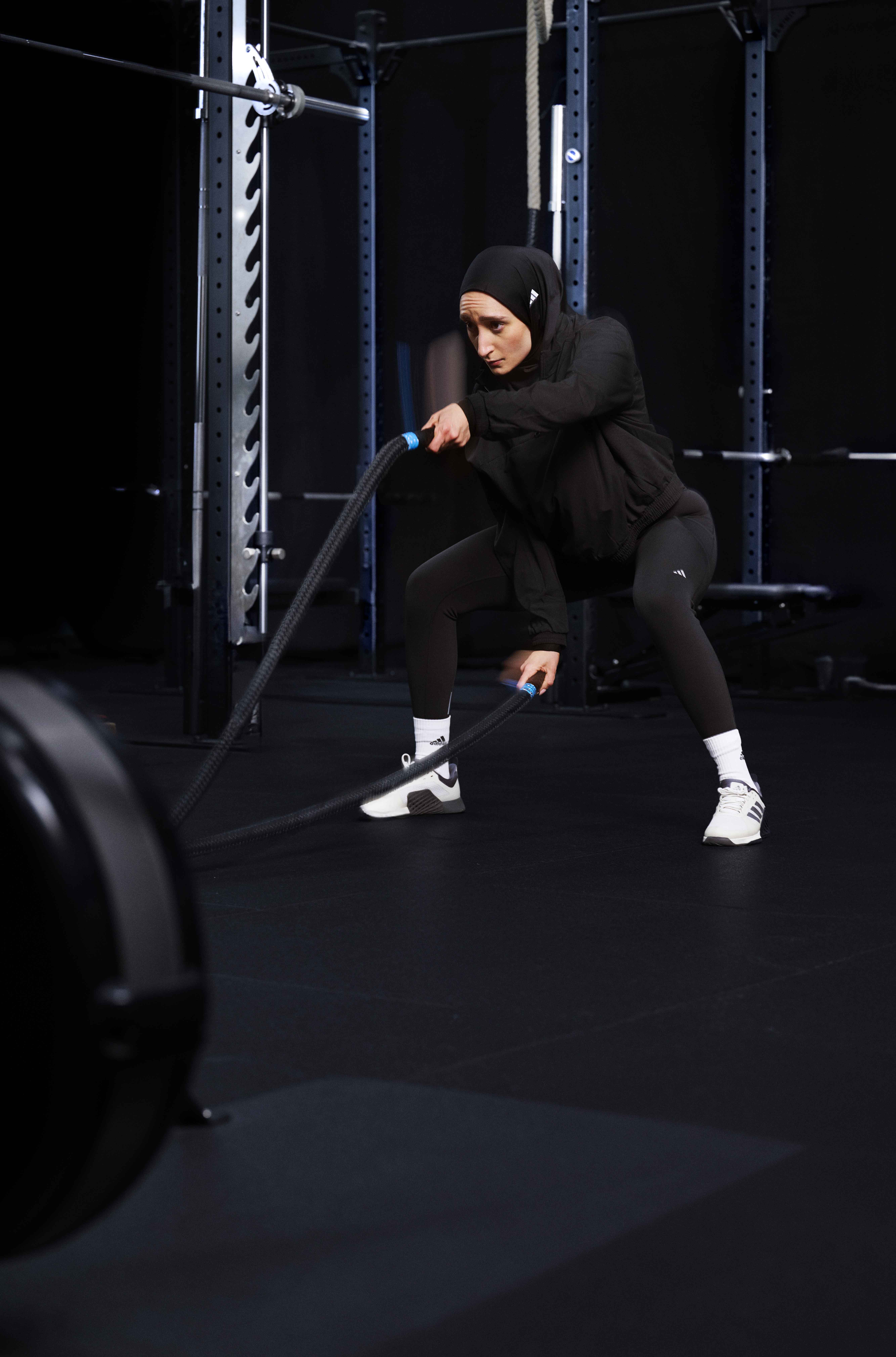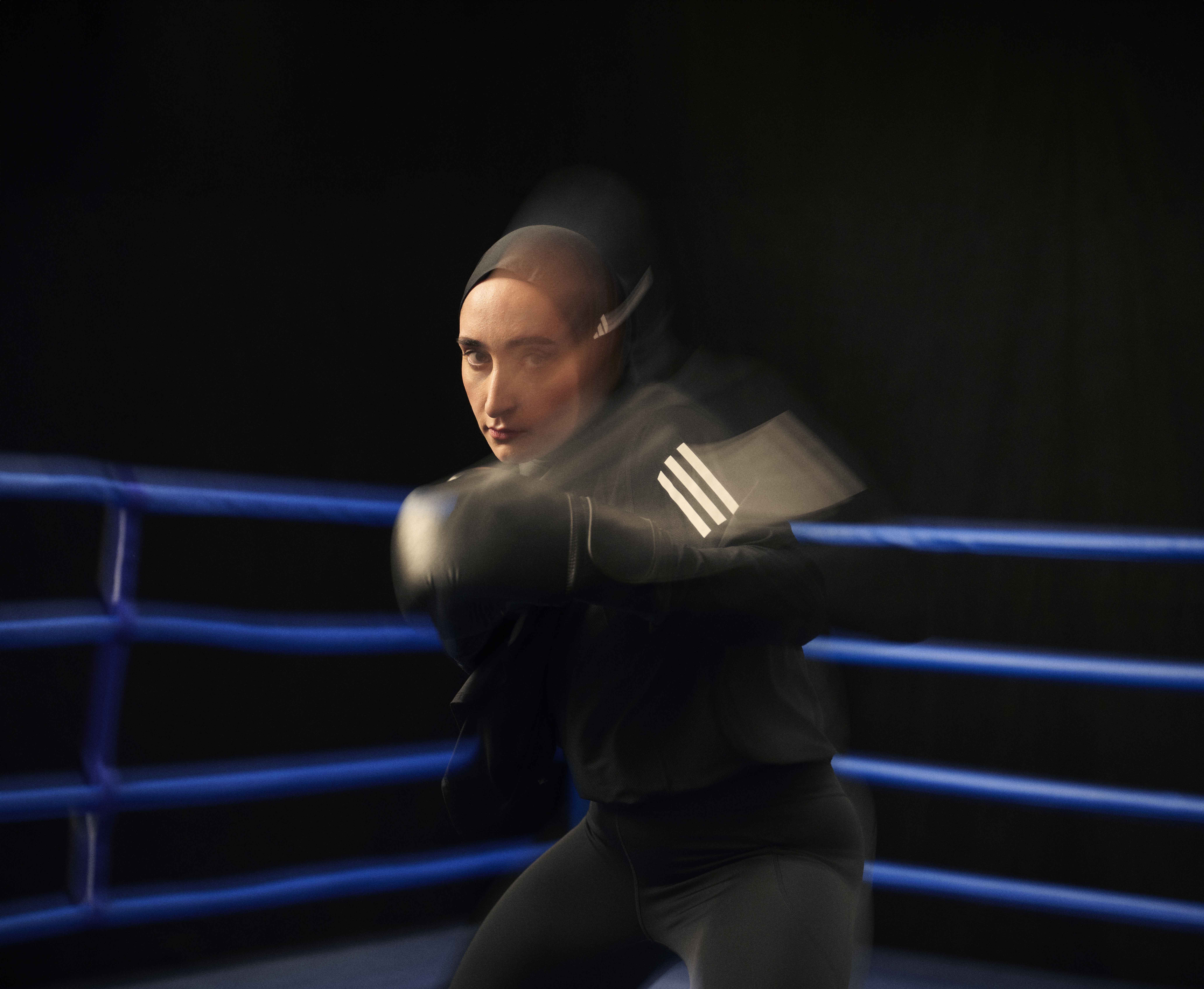RAMADAN PROVIDES A TIME FOR SELF-THERAPY
Sara Abouzeedan was the first person in Sweden to compete in Muay Thai wearing a hijab. Today, she has retired from competition, but she hasn't stopped training. "I train like an athlete, even though I'm not competing. I constantly want to challenge myself," she says.
Sara Abouzeedan, currently working in the hotel industry, previously competed at a high level in Thai boxing, always wearing a hijab. Recently, she dedicated three months of intense focus to her body and exercise regimen, engaging in strenuous strength training five times a week. The drive to challenge herself has been central to her approach to sports. This perspective likely influences her attitude towards combining exercise with Ramadan:
"For me, it feels more natural to combine Ramadan and exercise than not to. Exercise and religion are such significant parts of my life," she explains.
Do you alter your workout routine during Ramadan?
"It's just one month out of the year. Ramadan is far more about self-reflection than simply abstaining from food. It's about evaluating who I am as a person, how I care for my loved ones, and considering those who are less fortunate. It's not about self-centeredness; it's about something much greater."

“And when you are not eating, you have time to think, reflect, and have a sort of therapy session with yourself. It is truly a month where everyone focuses on different things like spending more time with family, reading more of the Quran, donating more money, doing good deeds. Ramadan is family-centered, with lots of cooking and to break the fast together. The goal is to accumulate as many good deeds as possible,” she says.
All the things Sara Abouzeedan mentions above also means that routines change during the holy month. It is common to flip the day and night schedule,” she continues.
"I take naps myself to ensure my energy doesn't suffer. I feel energized; I don't experience any weakening due to fasting. Perhaps my strength decreases slightly, but I don't feel the exhaustion many speak of. I've always exercised during the day and still had energy and strength."

3 tips: How to respond to questions about exercising and Ramadan
1. Highlight the holistic significance of Ramadan. It's not just about abstaining from food; it's a religious, festive, and sacred month. Emphasize the importance of spending time with family and friends, witnessing kindness, and celebrating together. Focus on being a good human being and fostering unity.
2. Approach questions with an open mind. Curiosity prompts inquiries, so respond based on your own experiences. Recognize that exercising and fasting may vary in their effects for different individuals.
3. Embrace setbacks with resilience. If you're in the minority, challenges may arise, but don't dwell on them. Instead, maintain focus on your goals and believe in yourself. Push forward with determination.
Follow Sara on Instagram, @szeedvn
